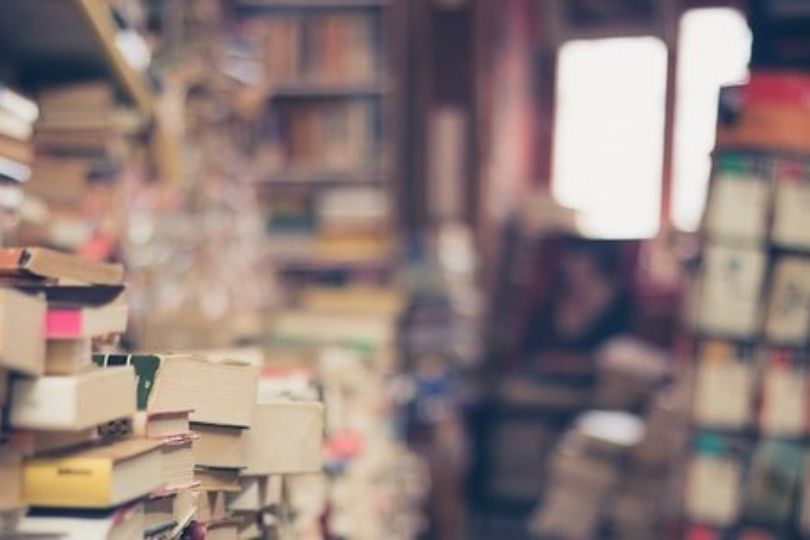Textbooks with Faults, Blurry Images, and Books Returned from Satkhira
Addressing concerns of poor quality, blurry images, and printing issues in free school textbooks. Explore the challenges and solutions for better education materials in Bangladesh.on Jan 05, 2024

The printing of school textbooks given to pupils for free has often been shoddy and thoughtless, as the quality of paper has deteriorated and the printing quality is low.
For example, on page 66 of the Class 7 history and social science textbook, there is a photo of Bangabandhu Sheikh Mujibur Rahman aboard a boat with a few others. However, the image is so blurry that identifying Bangabandhu without reading the description is impossible. The others in the image are also indistinguishable.
On page 73 of the same book, there is a photograph of Bangabandhu Sheikh Mujibur Rahman delivering a speech to the people during the 1971 election campaign. That is also completely unclear.
After collecting copies of textbooks from four separate classes, it was learned via teachers, guardians, printers, and National Curriculum and Textbook Board (NCTB) officials that the government had decided to lessen the brightness of the paper used for the books this time. Furthermore, the printing quality of two courses' textbooks was poor due to a last-minute rush to publish the volumes, printers seeking for bigger profits, errors, and a lack of supervision. Because the printing has not yet been completed, not everyone has received the books.
Over 31,000 Islamic Studies books provided to students were returned due to printing mistakes.
In an interview with Prothom Alo, NCTB chairman Md Farhadul Islam stated that it is not impossible for a few faults and poor printing to occur in a handful of the 310 million books or so. However, according to the standards, any printing problems or mistakes in the books must be corrected within 15 days. He claimed that only a few volumes in Satkhira had printing errors, and not all of them. An investigation committee will be constituted to look into the situation.
Such inconsistencies in textbooks are not uncommon. next a lengthy controversy over errors and contradictions in the textbooks for the 2023 academic year, two books for Class 6 and 7 (on history and social science) were abruptly pulled the next year. These two novels are not on the syllabus at this time. The Class 6 and 7 books for the 2023 academic year were riddled with errors, which NCTB later corrected.
Tk 14 billion was spent on free books.
Beginning in 2010, the government began giving free school textbooks for grades 7 through 9. On the opening day of the academic year, a book distribution festival would be held to distribute new books to students.
The government had to spend approximately Tk 14 billion (Tk 1400 crore) this year to give these new books. The total number of books was approximately 307.1 million (30 crore 71 lakh). This time, students in grades 1, 2, 3, 6, 7, 8, and 9 received new curriculum-based textbooks. The remaining courses received previous curriculum books.
People concerned in education believe that providing free books is a wise option. This has resulted in greater school enrollment and a decrease in dropouts. However, many youngsters are receiving subpar books as a result of the carelessness of those in charge of printing and supervision. Children's books should be printed on high-quality paper.
NCTB is in charge of curriculum development as well as book publishing and distribution. On the condition of anonymity, two board officials informed Prothom Alo that the printing quality of certain volumes this time was poor.
There had been concerns that the printing quality might be poor this time. The brightness of the paper had previously been set to 85%. This time, the percentage was cut to 80%. According to NCTB chairman Farhadul Islam, the brightness was decreased on the suggestion of eye professionals.
According to sources, the global market price for high-quality paper pulp is high. For a brighter degree of paper, high quality paper pulp is required. The printer said in the middle of last year that they couldn't get excellent quality pulp and hence requested for compromises on the brightness of the paper. The NCTB agreed.
Former NCTB chairman Narayan Chandra Paul told Prothom Alo that printers cannot always be trusted. As a result, if you want good books, they must be prepared in accordance with the samples provided. If the printers are unable to supply the books according to the sample, the books must be rejected and the printers penalised. This must be done if future book quality is to be ensured.
Book-related grievances
After the books were distributed nationwide on the first day of the year, complaints began to stream in from all across the country about the printing and material quality. A teacher from a school in the capital's Segunbagicha, who did not want to be identified, told Prothom Alo that the printing quality of some of the books that came at their school appeared to be bad. The binding was very sloppy. The binding was very sloppy. Some of the volumes began to fall apart on the first day.
An unnamed father whose child attends Manipur School and College in the capital said his child is in Class 6. He received his English textbook, but some of it was illegible.
A glance through the books from grades 6, 7, 8, and 9 reveals that the paper and printing quality of the covers are satisfactory. However, the paper quality of the inside pages is often poor. In certain cases, the paper is of very poor quality. The images are also hazy. Page 121 of the Class 6 English book is somewhat clouded and unreadable.
Tofael Khan, former president of Bangladesh Mudran Shilpa Samity (Bangladesh Printing Industry Association), told Prothom Alo that he had seen some of the volumes. The standard was terrible. these had told NCTB in advance about some issues, but these had not been remedied. As a result, many pupils were denied access to high-quality books.
Satkhira's books have been withdrawn.
Following the distribution of the Class 3 book on Islam and Moral Education in Satkhira, 31,472 copies of the book were returned. The upazila primary education officer and assistant officer instructed that the books be taken back from the pupils and immediately returned to the education office a few hours after they were distributed on January 1.
On the condition of anonymity, a number of teachers notified Prothom Alo that they discovered errors in the book's interior covers. However, the inaccuracies did not appear in all of the volumes.
Muhammad Abdul Ghani, the primary education officer of Satkhira Sadar upazila, stated that 8,150 books were distributed in the Sadar upazila. In the inner covers of 233 books, there were themes unrelated to the Islam and Moral Education book.
Satkhira's deputy commissioner, Mohammad Humayun Kabir, stated that the books will be returned to the students soon once they have been scrutinised.
Not all books were delivered.
While the production of elementary level textbooks is complete, the printing of secondary level textbooks is not.Although the school year has begun, many kids have yet to get their whole collection of books.
AKM Obaidullah, headmaster of Segunbagicha High School in the capital, told Prothom Alo that while books for other classes were delivered on the day, some books for Class 8 and 9 had still to come.
According to NCTB, a considerable number of the over 100 million volumes for Class 8 and 9 were still unprinted on December 31. The NCTB authorities hope that the books will be delivered to the students by the 10th of January at the latest.
'High-quality literature should be provided.'
NCTB's primary responsibility is to prepare and create textbooks. However, many NCTB officials are more concerned with the publishing of the books. This is a topic of intense debate among NCTB officials.
Manzur Ahmed, retired professor at BRAC University, believes that rather than keeping the task of publishing the books with NCTB, it would be better to delegate it to another institution. According to Prothom Alo, the NCTB's primary responsibilities include curriculum development, research, and so on. The printing of books should be done separately.
According to Manzur Ahmed, the goal of offering free books is a laudable one. However, the children should be given high-quality books.



.jpg)






.jpg)

.jpg)
.jpg)
.jpg)

.jpg)
.jpg)

.jpg)








Sorry! No comment found for this post.